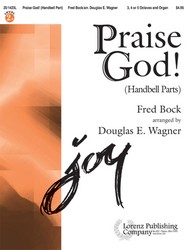- |
User Links
Bis hierher hat mich Gott gebracht
Bis hierher hat mich Gott gebracht
Author: Aemilie Juliane, Gräfin von Schwarzburg-RudelstadtPublished in 61 hymnals
Audio files: MIDI
Representative Text
1 Bis hierher hat mich Gott gebracht
durch seine große Güte,
bis hierher hat er Tag und Nacht
bewahrt Herz und Gemüte,
bis hierher hat er mich geleit',
bis hierher hat er mich erfreut,
bis hierher mir geholfen.
2 Hab Lob und Ehr, hab Preis und Dank
für die bisher'ge Treue,
die du, o Gott, mir lebenslang
bewiesen täglich neue.
In mein Gedächtnis schreib ich an:
der Herr hat Großes mir getan,
bis hierher mir geholfen.
3 Hilf fernerhin, mein treuster Hort,
hilf mir zu allen Stunden.
Hilf mir an all und jedem Ort,
hilf mir durch Jesu Wunden.
Damit sag ich bis in den Tod:
durch Christi Blut hilft mir mein Gott;
er hilft, wie er geholfen.
Source: Antwort Finden in alten und neuen Liedern, in Worten zum Nachdenken und Beten: evangelisches Gesangbuch (Bayern, Mitteldeutschland, Thüringen) #329
Author: Aemilie Juliane, Gräfin von Schwarzburg-Rudelstadt
 Emilie Juliane was daughter of Count Albert Friedrich of Barby and Mühlingen (on the Elbe, near its junction with the Saale). During the Thirty Years' war her father and family had to seek refuge in the Heidecksburg, the castle of his uncle, Count Ludwig Günther of Schwarzburg Rudolstadt, and Emilie was born at the Heidecksburg, Aug. 16, 1637. After the death of her father (1641) and mother (1642), she was adopted by her mother's sister (who was her godmother, and had become the wife of Count Ludwig Günther), and was educated at Rudolstadt with her cousins, under the care of Dr. Ahasuerus Fritsch, and other tutors. She became the wife of her cousin, Albert Anton, July 7, 1665, and died at Rudolstadt, Dec. 3, 1706 (Koch, iv. 56-63; Allg.… Go to person page >
Emilie Juliane was daughter of Count Albert Friedrich of Barby and Mühlingen (on the Elbe, near its junction with the Saale). During the Thirty Years' war her father and family had to seek refuge in the Heidecksburg, the castle of his uncle, Count Ludwig Günther of Schwarzburg Rudolstadt, and Emilie was born at the Heidecksburg, Aug. 16, 1637. After the death of her father (1641) and mother (1642), she was adopted by her mother's sister (who was her godmother, and had become the wife of Count Ludwig Günther), and was educated at Rudolstadt with her cousins, under the care of Dr. Ahasuerus Fritsch, and other tutors. She became the wife of her cousin, Albert Anton, July 7, 1665, and died at Rudolstadt, Dec. 3, 1706 (Koch, iv. 56-63; Allg.… Go to person page >Text Information
| First Line: | Bis hierher hat mich Gott gebracht |
| Author: | Aemilie Juliane, Gräfin von Schwarzburg-Rudelstadt |
| Language: | German |
| Notes: | Polish translation: See "Aż dotąd mnie prowadził Bóg"; English translation: See "The Lord hath helped me hitherto" by August Crull; Swahili translation: See "Mungu kanilinda mimi" |
| Copyright: | Public Domain |
English
French
German
- Antwort Finden in alten und neuen Liedern, in Worten zum Nachdenken und Beten: evangelisches Gesangbuch (Bayern, Mitteldeutschland, Thüringen) #329
- Das neue Gemeinschaftliche Gesangbuch, zum ... der Lutherischen und Reformirten Gemeinden in Nord-Amerika ... neuen Anhg. #ad46
- Deutsche Gesangbuch fuer die Evangelisch-Lutherische Kirche in den Vereinigten Staaten Herausgegeben mit kirchlicher Genehmigung #d56
- Deutsches Christliches Gesangbuch der Amischen Christlichen Kirche #d20
- Deutsches Gesangbuch der Bisch. Methodisten-Kirche: eine neue Auswahl geistlicher Lieder fuer Kirche, Haus und Schule #d55
- Deutsches Gesangbuch fuer die evangelisch-lutherische Kirche in den Vereinigten Staaten. Verbesserte Ausg. #d64
- Deutsches Gesangbuch für die Evangelisch-Luterische Kirche in den Vereinigten Staaten: herausgegeben mit kirchlicher Genehmigung #562
- Deutsches Gesangbuch für die Evangelisch-Luterische Kirche in den Vereinigten Staaten: herausgegeben mit kirchlicher Genehmigung (22nd aufl.) #562
- Deutsches Gesangbuch: für den Evangelisch-Lutherische Kirche in den Vereinigten Staaten herausgegen mit kirchlicher Genehmigung #562
- Die Geistliche Viole: oder, eine kleine Sammlung Geistreicher Lieder (10th ed.) #198 10 shown out of 60
Tune
ELBINGALLEIN GOTT IN DER HÖH
The tune name ALLEIN GOTT derives from the opening words of Decius's rhymed text in High German. The tune was first published in Schumann's Geistliche Lieder. Decius adapted the tune from a tenth-century Easter chant for the Gloria text, beginning at the part accompanying the words "et in terra pax.…
LUTHER'S HYMN


 My Starred Hymns
My Starred Hymns






